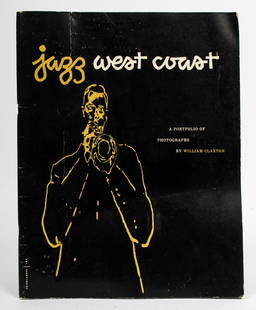
1668 DESCARTES EPISTOLAE 2 volumes ANTIQUE illustrated
Similar Sale History
View More Items in Books


Related Books
More Items in Books
View MoreRecommended Books, Magazines & Papers
View More

















Item Details
Description
DESCARTES, Rene (1596-1650).
First Latin edition of Descartes' correspondence, compiled by Johannes De Raei.
It contains 237 letters, illustrated with woodcut figures in the text.
Amsterdam: Daniel Elzevir, 1668.
Size: 6.5 by 8"
Original calf, spines in 5 compartments with 4 raised bands, gilt-lettered in one compartment, gilt-decorated in the rest, red speckled edges.
Very good interior, worn leather
Manuscript note at the front endpapers: Ex dono amici Desrosiers, fevr. 1838.
Rene Descartes ( Latinized: Renatus Cartesius: 1596 – 1650?) was a French philosopher, mathematician, and scientist who invented analytic geometry, linking the previously separate fields of geometry and algebra. He spent a large portion of his working life in the Dutch Republic, initially serving the Dutch States Army of Maurice of Nassau, Prince of Orange and the Stadtholder of the United Provinces. One of the most notable intellectual figures of the Dutch Golden Age, Descartes is also widely regarded as one of the founders of modern philosophy and algebraic geometry.
Many elements of Descartes' philosophy have precedents in late Aristotelianism, the revived Stoicism of the 16th century, or in earlier philosophers like Augustine. In his natural philosophy, he differed from the schools on two major points: first, he rejected the splitting of corporeal substance into matter and form; second, he rejected any appeal to final ends, divine or natural, in explaining natural phenomena.[20] In his theology, he insists on the absolute freedom of God's act of creation. Refusing to accept the authority of previous philosophers, Descartes frequently set his views apart from the philosophers who preceded him. In the opening section of the Passions of the Soul, an early modern treatise on emotions, Descartes goes so far as to assert that he will write on this topic "as if no one had written on these matters before." His best known philosophical statement is "cogito, ergo sum" ("I think, therefore I am"; French: Je pense, donc je suis), found in Discourse on the Method (1637; in French and Latin) and Principles of Philosophy (1644, in Latin).
Descartes has often been called the father of modern philosophy, and is largely seen as responsible for the increased attention given to epistemology in the 17th century.He laid the foundation for 17th-century continental rationalism, later advocated by Spinoza and Leibniz, and was later opposed by the empiricist school of thought consisting of Hobbes, Locke, Berkeley, and Hume. In the 17th-century Dutch Republic, the rise of early modern rationalism – as a highly systematic school of philosophy in its own right for the first time in history – exerted an immense and profound influence on modern Western thought in general, with the birth of two influential rationalistic philosophical systems of Descartes (who spent most of his adult life and wrote all his major work in the United Provinces of the Netherlands) and Spinoza – namely Cartesianism and Spinozism. It was the 17th-century arch-rationalists like Descartes, Spinoza and Leibniz who have given the "Age of Reason" its name and place in history. Leibniz, Spinoza,and Descartes were all well-versed in mathematics as well as philosophy, and Descartes and Leibniz contributed greatly to science as well.
Descartes' Meditations on First Philosophy (1641) continues to be a standard text at most university philosophy departments. Descartes' influence in mathematics is equally apparent; the Cartesian coordinate system was named after him. He is credited as the father of analytic geometry, the bridge between algebra and geometry—used in the discovery of infinitesimal calculus and analysis. Descartes was also one of the key figures in the Scientific Revolution.
3.8
Reserve: $800.00
Shipping:Domestic: Flat-rate of $25.00 to anywhere within the contiguous U.S. International: Foreign shipping rates are determined by destination. International shipping may be subject to VAT. Combined shipping: Please ask about combined shipping for multiple lots before bidding. Location: This item ships from Pennsylvania
Your purchase is protected:
Photos, descriptions, and estimates were prepared with the utmost care by a fully certified expert and appraiser. All items in this sale are guaranteed authentic.
In the rare event that the item did not conform to the lot description in the sale, Jasper52 specialists are here to help. Buyers may return the item for a full refund provided you notify Jasper52 within 5 days of receiving the item.
First Latin edition of Descartes' correspondence, compiled by Johannes De Raei.
It contains 237 letters, illustrated with woodcut figures in the text.
Amsterdam: Daniel Elzevir, 1668.
Size: 6.5 by 8"
Original calf, spines in 5 compartments with 4 raised bands, gilt-lettered in one compartment, gilt-decorated in the rest, red speckled edges.
Very good interior, worn leather
Manuscript note at the front endpapers: Ex dono amici Desrosiers, fevr. 1838.
Rene Descartes ( Latinized: Renatus Cartesius: 1596 – 1650?) was a French philosopher, mathematician, and scientist who invented analytic geometry, linking the previously separate fields of geometry and algebra. He spent a large portion of his working life in the Dutch Republic, initially serving the Dutch States Army of Maurice of Nassau, Prince of Orange and the Stadtholder of the United Provinces. One of the most notable intellectual figures of the Dutch Golden Age, Descartes is also widely regarded as one of the founders of modern philosophy and algebraic geometry.
Many elements of Descartes' philosophy have precedents in late Aristotelianism, the revived Stoicism of the 16th century, or in earlier philosophers like Augustine. In his natural philosophy, he differed from the schools on two major points: first, he rejected the splitting of corporeal substance into matter and form; second, he rejected any appeal to final ends, divine or natural, in explaining natural phenomena.[20] In his theology, he insists on the absolute freedom of God's act of creation. Refusing to accept the authority of previous philosophers, Descartes frequently set his views apart from the philosophers who preceded him. In the opening section of the Passions of the Soul, an early modern treatise on emotions, Descartes goes so far as to assert that he will write on this topic "as if no one had written on these matters before." His best known philosophical statement is "cogito, ergo sum" ("I think, therefore I am"; French: Je pense, donc je suis), found in Discourse on the Method (1637; in French and Latin) and Principles of Philosophy (1644, in Latin).
Descartes has often been called the father of modern philosophy, and is largely seen as responsible for the increased attention given to epistemology in the 17th century.He laid the foundation for 17th-century continental rationalism, later advocated by Spinoza and Leibniz, and was later opposed by the empiricist school of thought consisting of Hobbes, Locke, Berkeley, and Hume. In the 17th-century Dutch Republic, the rise of early modern rationalism – as a highly systematic school of philosophy in its own right for the first time in history – exerted an immense and profound influence on modern Western thought in general, with the birth of two influential rationalistic philosophical systems of Descartes (who spent most of his adult life and wrote all his major work in the United Provinces of the Netherlands) and Spinoza – namely Cartesianism and Spinozism. It was the 17th-century arch-rationalists like Descartes, Spinoza and Leibniz who have given the "Age of Reason" its name and place in history. Leibniz, Spinoza,and Descartes were all well-versed in mathematics as well as philosophy, and Descartes and Leibniz contributed greatly to science as well.
Descartes' Meditations on First Philosophy (1641) continues to be a standard text at most university philosophy departments. Descartes' influence in mathematics is equally apparent; the Cartesian coordinate system was named after him. He is credited as the father of analytic geometry, the bridge between algebra and geometry—used in the discovery of infinitesimal calculus and analysis. Descartes was also one of the key figures in the Scientific Revolution.
3.8
Reserve: $800.00
Shipping:
Your purchase is protected:
Photos, descriptions, and estimates were prepared with the utmost care by a fully certified expert and appraiser. All items in this sale are guaranteed authentic.
In the rare event that the item did not conform to the lot description in the sale, Jasper52 specialists are here to help. Buyers may return the item for a full refund provided you notify Jasper52 within 5 days of receiving the item.
Buyer's Premium
- 15%
1668 DESCARTES EPISTOLAE 2 volumes ANTIQUE illustrated
Estimate $1,200 - $1,500
2 bidders are watching this item.
Shipping & Pickup Options
Item located in Pennsylvania, US$25 shipping in the US
Payment
Accepts seamless payments through LiveAuctioneers
See More Items From This Jasper52 Seller

TOP






















![1893 CHARLES DARWIN SELECTED WORKS 15 VOLUMES antique ILLUSTRATED #147/1000: Selected Works of Charles Darwin New York and London, Appleton and Company; [1893] 15 volumes. With engraved frontispieces, plates, some folding, captioned tissue guards, title pages printed in red an](https://p1.liveauctioneers.com/5584/291259/154274001_1_x.jpg?height=310&quality=70&version=1686144622)





![1885 SCOTTISH HIGHLAND CLANS & REGIMENTS 7 VOLUMES antique ILLUSTRATED: SCOTTISH HIGHLAND CLANS & REGIMENTS 7 VOLUMES Fullerton & Co., Edinburgh; nd [c.1885] Size 7 3/4 by 11" Original cloth binding, some wear. Illustrated Text in English Reserve: $274.00 Shipping:](https://p1.liveauctioneers.com/5584/316535/169892150_1_x.jpg?height=310&quality=70&version=1706046383)
![1784 4 volumes antique illustrated LIFE & OPINIONS of: 4 volumes Size 3 by 5" A Londres, 1784-1785 viii-xii-310, [4] -377-4, [4] -iii-379, [4] -388 pp. Very good condition. Leather bound. Gilt edge. Cazin edition of this translation by Frenais Illustratio](https://p1.liveauctioneers.com/5584/220494/113396704_1_x.jpg?height=310&quality=70&version=1633469264)





























![19 issues of rare Gay Magazine METRA 1985-1986: [Queer interest], Metra: Midwest America's Leading Free Gay Magazine, 19 issues, published 1986-1987, a few duplicates, softcover, staplebound wraps, illustrated throughout in black and white, publish](https://p1.liveauctioneers.com/184/328649/177016396_1_x.jpg?height=310&quality=70&version=1714770323)





















